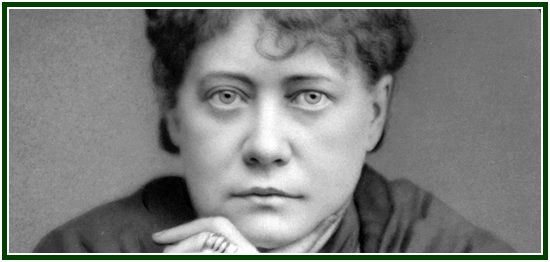
The Practice of Silence
Strengthens the Value of What We Say
Carlos Cardoso Aveline

* Sincerity is no synonym to transparency. Whoever seeks for wisdom must be always sincere. His duty is to be transparent when the circumstances make it possible. If a child raises questions, there are certain topics regarding which you will have to keep silence. When some forms of knowledge get to the wrong hands, the result is unnecessary suffering.
* It is easy to see if children are prepared to know more and if they have a sense of responsibility and an ability to understand that which you may say to them. You are responsible for the words you pronounce. On the other hand, your intention must be always sincere. Such an honesty has to be tempered – and protected – by the right use of silence.
* In “Letters from the Masters of the Wisdom”, a Mahatma reveals the importance of silence: “‘To dare, to will, to act and remain silent’ is our motto as that of every Kabalist and Occultist.” [1]
Silence and Sincerity
* There are many kinds of silence, and not all of them are well-intentioned. Along the way to divine knowledge, one can only employ those forms of silence that are connected to an honest purpose.
* Examining our intentions on their various levels is a basic duty.
* Keeping silence saves magnetism and expands the efficiency of those who understand each other, thus avoiding mental dispersion. The advantages of not speaking too much are great as we seek for wisdom. However, the practice of silence must go side by side with sincerity and never part from it.
* The practice of silence strengthens the value of what we say.
* Transparency is practiced whenever the circumstances and the tide of Karma allow it. A valiant declaration of principles must be made. We have to be as clear and transparent as we can, but good sense is necessary.
* Along the spiritual path, keeping silence is an important tool, yet abandoning sincerity is an entirely different thing. In the territory of true philosophy, it is not possible to leave honesty aside in any moment. The Karma of falsehood takes the pilgrim away from the Path, and his relation to the Ethics and essence of wisdom becomes but superficial and ornamental.
* The motto of the theosophical movement includes the idea that “there is nothing higher than truth”. And truth is inseparable from sincerity. An honest heart entirely rejects the practice of falsity, because it knows that untruthfulness makes the pilgrim become disoriented and confused to say the least.
* You can’t keep an inner silence unless you have internal equilibrium.
* The right kind of balance establishes itself in a symmetry whose substance is Justice. In such conditions real silence is possible.
* In love, in deep understanding and in the world of yoga, a combination of balance and symmetry produces plain insight or contentment. Many a sound is then unnecessary.
Being Sure About the Victory
* What guarantee does a Theosophist have as he walks on the steep, narrow, uphill path to wisdom?
* According to Marc Edmund Jones, life offers enduring rewards “whenever it is taken seriously in its own fundamental terms or accepted with a realization of the underlying friendliness of the world at large”. There is, he says, “an encouragement on which any individual may count, knowing that his unflagging courage in pressing forward on his pilgrimage from darkness to light is the best of all guarantees of his achievement”. [2]
The Cycle of 24 Hours
* The solar cycle of 24 hours, including as key moments the sunrise and sunset, has a special significance in theosophy because of its syntony and interaction with the great cosmic cycles – manvantaras and pralayas – during which both universes and solar systems emerge, live and get asleep again.
* We must always keep in mind the fact that each new day of 24 hours brings us valuable opportunities to renew and to deepen our experience of life.
* Classical theosophic philosophy teaches that the act of awakening, in the morning, is like being born. To sleep, at night, is potentially to become one with the universe as a whole, for a few hours. Thus, Helena P. Blavatsky wrote: “My nights are my manvantaras.” [3] She worked as a soul on the subtle plane while her physical body was asleep.
Regarding the Duration of One’s Life
* H.P. Blavatsky wrote about the length of human life: “It is the will of man, his all-potent will, that weaves his destiny (…). It is among our commonest experiences that the determination of physical life or death depends upon the will. Some people snatch themselves by force of determination from the very jaws of death; while others succumb to insignificant maladies.” [4]
NOTES:
[1] “Letters From the Masters of the Wisdom – Second Series”, Letter 65, p. 118.
[2] These words are from the book “The Sabian Symbols in Astrology”, by Marc Edmund Jones, Aurora Press, Santa Fe, New Mexico, USA, Copyright 1993, 437 pages. See the commentary to the 28th degree of Libra, on p. 177.
[3] Quoted at the third paragraph of “How Far Away is H.P. Blavatsky?”.
[4] From the 1878 article “Views of the Theosophists”, published in “The Collected Writings”, H. P. Blavatsky, TPH, USA, volume I, p. 299. These words by Blavatsky are also published at “The Aquarian Theosophist”, November 2020, p. 12.
000
The above article was published as an independent item in the associated websites on 24 October 2022. An initial version of it – with no indication as to the name of the author – is part of the November 2020 edition of “The Aquarian Theosophist”, pp. 9-11.
000
Read more:
* The Shock Doctrine, by James Richards.
* Other writings of Carlos Cardoso Aveline.
000

Helena Blavatsky (photo) wrote these words: “Deserve, then desire”.
000